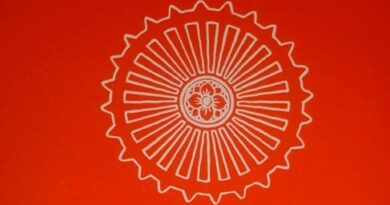Catupārisuddhi Sīla
MAIN CONTENT
Catupārisuddhi sīla
There are four types of morality called pātimokkhasanvara sīla, indriyasanvara sīla, ājīvapārisuddhi sīla, paccayasannissita sīla. These four types of morality are reffered to as catupārisuddhi sīla. These four types of morality are applicable to both sāmacera and upsammpanna bhikkhūs. The only difference is that the pātimokkhasanvara sīla of the sāmaceras has less precepts.
Pātimokkhasanvara sīla
Morality concerned with the vinaya precepts is pātimokkhasamvara sīla. The group of precepts to be followed by the sāmaceras is the pātimokkhasanvara sīla of the sāmaceras. The group of precepts followed by the upsampanna bhikkhūs is the pātimokkhasanvara sila of the higher ordained.
Indriyasauvara sīla
There are six faculties named eye, ear, nose, tounge, body and mind, which receive external objects. Visual objects, sound, smell, taste, contact and mind objects are the six external objects, which impact on the six faculties. It is an attachment or opposition, which arise regarding the six external objects which impact on six faculties of people who do not live mindfully according to the Dhamma. Attachment is the root cause of greed. Opposition is the root cause of haterd. When an attachment or opposition to an object arises, there occurs a series of unwholesome consciousness. Thereby the restraint of the faculties may be hindered. Taking care to avoid unwholesome consciousness arising from attachment and opposition is indriyasanvara sīla.
When a visual object meets the eye, stopping at considering it only as an object does not result in defilements. No unwholesome thought arises. Defilements occur concerning objects such as images, when their signs and minor signs are taken into consideration. When the eye sees an object, perceiving it as, this is a young man, young woman, old man, old woman; beautiful one, ugly one, an enemy or friend is taking the sign. When so perceived attachment as good and beautiful is bad. Opposition as ugly etc. is bad. Perceiving as cheeks, lips, teeth eyes, hands, legs and chest is taking them as signs. Perceiving the different parts as beautiful and good or bad and ugly results in attachment or opposition.
Sometime in the past, a woman who lived in Anuradhapura quarreled with her husband and left home. She met Maha Tissa thero on the way and laughed aloud. The thero saw her teeth and considered her person as a skeleton. The husband who came looking for her inquired from the thero, whether he saw a woman going this way. The thero replied by saying that he did not notice a man or woman but saw a skeleton passing by.The thero did not perceive the woman as a woman because of his high indriyasanvara sīla. Indriyasanvara sīla must be observed as done by Maha Tissa thero. This is a very difficult sīla to observe. Therefore, precepts are not decreed regarding this. Bhikkhūs should improve their samaca status by living with the control of their faculties, thereby preserving this morality.
Ājīvapārisuddhi sīla (Morality concerning proper livelihood)
Living by means such as begging for food, without engaging in activities that please the lay people and encourage them to offer requisites, but are detested by the likes of the Buddha is Ājīvapārisuddhi sīla.
It must be realized that receiving requisites by giving things to the lay people to please them, the practice of medicine, practice of astrology, practice of palmistry, preparing auspicious times, engaging in occult practices, arranging jobs, walking up to receive lay people, walking behind them, flattering to show faithfulness, thanking those present, talking ill of those not present, addressing with excessive respect, speaking a mixture of lies and truth, fondling lay children, performing lay acts such as running errands, indicating your virtues, showing non-existent virtues and rejecting what is offered with the hope of receiving more is improper livelihood.
Pratya sannishrita sīla (Morality concerning requisites)
Consumption of the requisites obtained by righteous means such as begging for food, with relfection as elements or as loathsome/repulsive is pratya sannishrita sīla. Reflection was discussed earlier.



